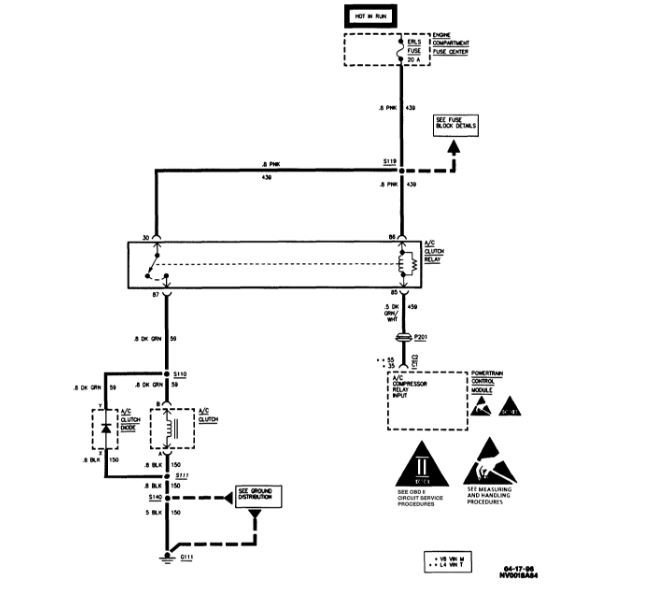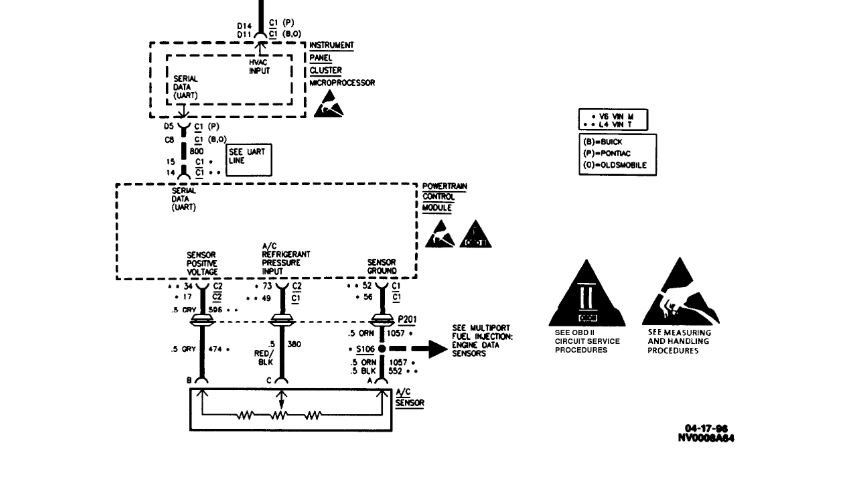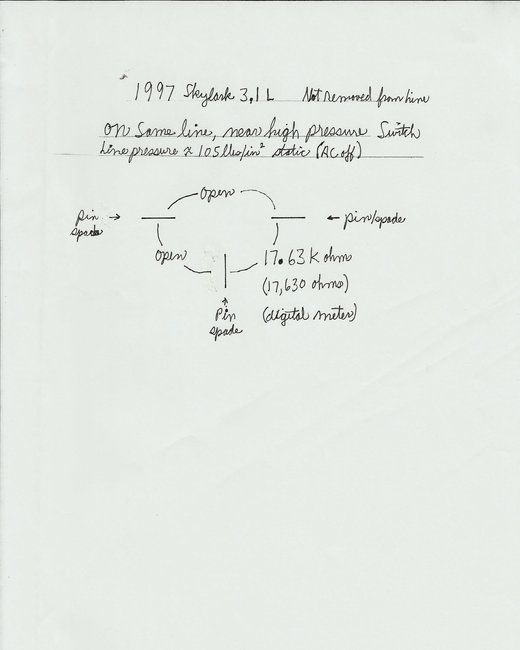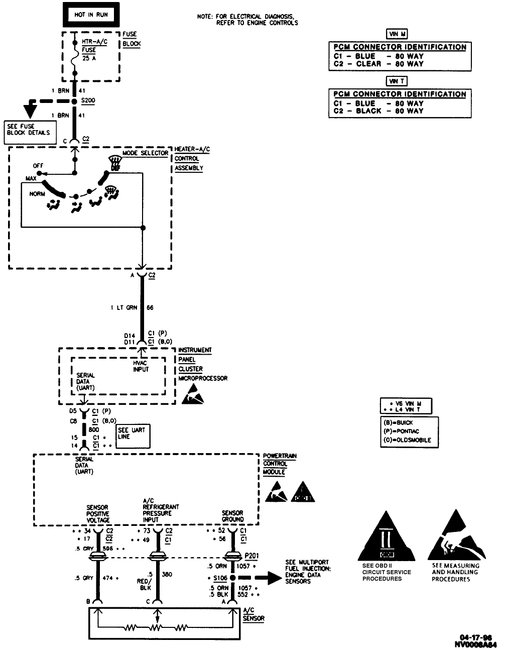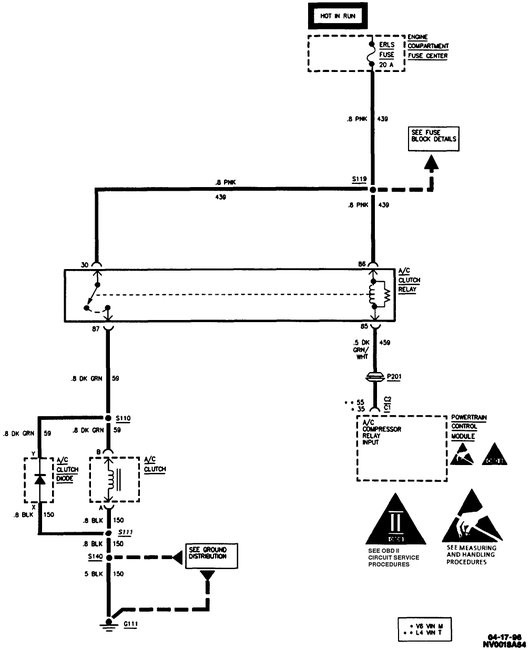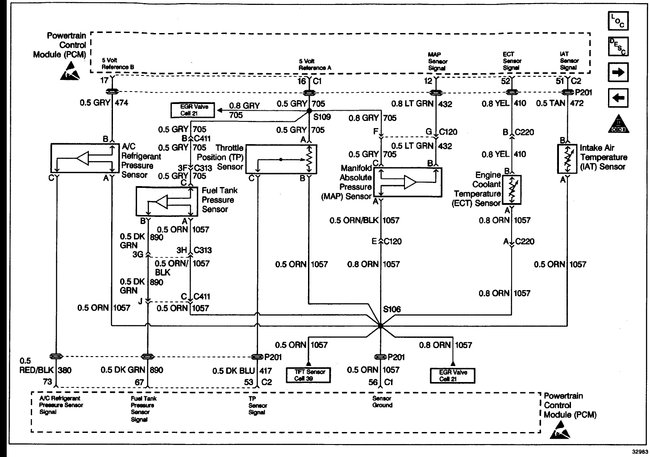I had checked the fuse, cleaned relay pins, checked relay making and the contact resistance.
I measured the static (not running compressor) and the pressure is ~105 psi (~85 degrees).
The air conditioner has a sensor transducer with three pins/spades on the high pressure line, near the high pressure port.
The transducer is currently plugged into the line.
I removed the plug and using my digital meter check the transducer from pin to pin, and it measured open, open, and 15.63K ohms (15,630 ohms). Please check uploaded drawing I provided below.
1. Any thoughts as to whether the pressure transducer is working properly?
2. Is the AC circuitry connected to the computer?
Any other thoughts concerning the problem?
Thanks for your time and efforts.
Steve Sammet
Thursday, June 14th, 2018 AT 1:01 PM
